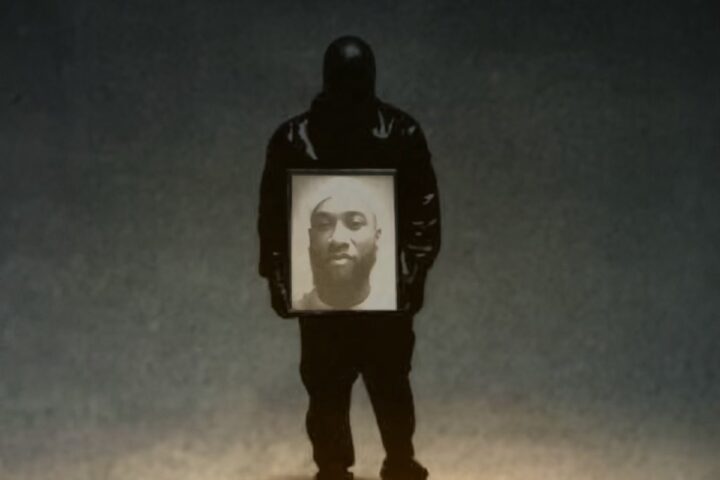Fittingly for an album named after an imaginary realm she invented as a child, Beatrice Laus’s sophomore effort as Beabadoobee, 2022’s Beatopia, was eccentric, unpredictable, and a bit fantastical, as if its songs were emanating like rays of light from a shimmery dreamworld sculpted out of ’90s indie-rock fuzz and bedroom pop.
Absent the clicks, hisses, and alien-sounding backing vocals that made Beatopia so appealingly weird, This Is How Tomorrow Moves initially sounds dry and familiar. But there’s a reason for that—and it’s not, or at least not entirely, a desire to court an MOR audience. Where Beatopia was influenced by ways of escaping the real world, from childhood fantasy to psilocybin, This Is How Tomorrow Moves is squarely grounded in frank reality—more specifically, the reality of the 24-year-old Laus striving for a new sense of maturity as a person and a songwriter.
Co-produced by Rick Rubin and partially recorded at his Shangri-La studio in L.A., the album is so devoid of the ear candy that coursed its predecessor that it sounds naked by comparison. This isn’t unexpected for Rubin, who’s famous for capturing artists like Johnny Cash in their most organic states. It proves to be a fitting approach for an album full of both close-to-the bone introspection and melodies that prove sturdy enough to stand up on their own. “In a way I’m figuring it out at my own pace/Just a girl who overthinks about proportions or her waist/The creases on her face,” Laus sings on the unflinching “Girl Song,” accompanied only by a piano.
Indeed, while some subtle flourishes with Rubin’s classicist stamp on them elevate a number of the album’s songs (the Beatlesque Leslie speaker guitar on “One Time” and the beautifully mic’d acoustic bass and dampened piano motif on the pitch-perfect closing Elliott Smith tribute “This Is How It Went”), Laus seems determined to present her music with as few frills as possible. Her smooth, laidback vocal style, coupled with mostly similarly relaxed arrangements, enable the hooks to practically creep up on you before they burrow their way into your brain.
Opening track “Take a Bite” unravels at a leisurely pace that gives Laus room to weave sharp, precise cadences around like a proverbial ball of silky indie-pop yarn. Whether embedded in wide-eyed balladry like “Tie My Shoes” or the caustic simmer of “Real Man,” she has composed a batch of sneaky good melodies that don’t require embellishment to land.
Still, it’s hard not to miss either the noise of Fake It Like Flowers or the eclecticism of Beatopia. This album’s token rockers, “California” and “Post,” are pale echoes of fuzzed-out pop-punk dopamine rushes like “Talk” and “10:36,” though “California” at least hints at them with its fun, harmonized lead guitar bit. And where Beatopia nodded to various eras of pop music, This Is How Tomorrow Moves favors a more uniform, adult aesthetic—with the notable exception of the excellent “Everseen,” a dead ringer for Fearless-era Taylor Swift.
Compared to Beatopia’s “Lovesong,” a beautiful acoustic track with generic lyrics, most of the similarly styled songs here are pointedly revealing, portraying the familiar but resonant tumult of trying to grow past youthful parties and chaos and wondering what lies beyond them. “It’s been a rough ride,” Laus sighs on “California,” sounding exhausted as power chords chug around her: “Now you’re stuck in the past, I’m tired of living so fast.”
On the swooning waltz “Coming Home,” Laus envisions a way out, fantasizing about doing the dishes, taking out the trash, and an understanding paramour who’ll forgive her for the late nights that she promises will soon come to an end. It sounds like it’s a daydream—bittersweet breakup songs like “One Time” and “This Is How It Went” scan like they’re closer to Laus’s current reality—but it reveals an inner world that’s growing less phantasmic by the day.
Since 2001, we've brought you uncompromising, candid takes on the world of film, music, television, video games, theater, and more. Independently owned and operated publications like Slant have been hit hard in recent years, but we’re committed to keeping our content free and accessible—meaning no paywalls or fees.
If you like what we do, please consider subscribing to our Patreon or making a donation.




